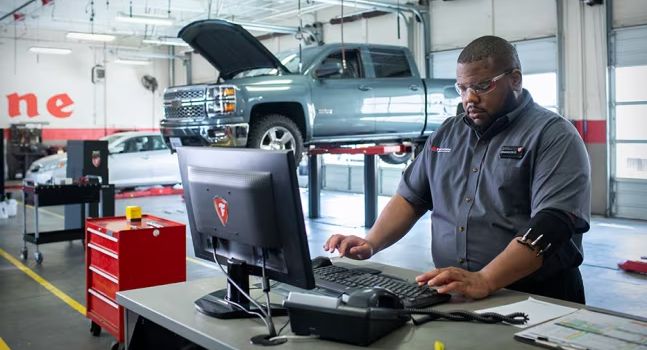ELECTRIC VEHICLE BASICS
Electric vehicles typically don’t require fuel. Instead, they are designed to store energy in a rechargeable battery which powers an electric motor and turns the wheels. From added torque to less engine noise, the benefits of electric vehicles are leading more and more people to make the switch every year. While the main difference between an EV and a traditional vehicle is the power source, if you’re thinking about switching, you should consider other parts of the car, such as how the design of an EV impacts the tires.
WHAT TO LOOK FOR IN EV TIRES
Choosing the right tires for an EV is essential for maximizing the car's efficiency, braking performance, longevity and mileage. Choosing a tire engineered specifically for EVs like the Bridgestone Turanza EV tires, can help you get the most out of your purchase. The Turanza EV tires are designed to maximize tread life, minimize road noise and provide grip. Although many tires may fit and be suitable for EVs, the Turanza EV tire is purpose-built and can offer added value.
Here are the top factors to keep in mind when you’re shopping for EV tires.
LOAD INDEX
The battery in an EV adds significant weight to the vehicle compared to a traditional fuel-powered vehicle. That added weight can put added pressure on the tires. The Gross Vehicle Weight Rating (GVWR) is used to determine the load index and can be found on the driver’s door jamb area or in the owner’s manual.
LOW FRICTION
Choosing tires with less rolling friction will contribute to lower rolling resistance. That means you’ll get more range and efficiency out of your electric vehicle, which can help contribute to sustainability and battery life.
LOW NOISE
Electric vehicles are already quieter due to the absence of engine noise, so to maintain a smooth, silent ride, you’ll want to choose tires with noise-reducing technology.
ROBUST RUBBER COMPOUNDS
The instant torque of EVs can lead to increased wear and tear on the tires. Tires made with a quality rubber compound are designed to have the strength to withstand this added torque.

EV TIRE MAINTENANCE
Electric vehicle tires require care and maintenance just like traditional vehicle tires. Regularly checking tire tread for wear and tear, maintaining optimal air pressure, adjusting for proper wheel alignment and tire balance, and doing regular rotations are all recommended. Look up the tire specs and maintenance schedule recommended by the vehicle manufacturer to ensure you’re optimizing your tires. The vehicle was designed to run under certain conditions, so if you keep an eye on changes and avoid pushing your vehicle past its limits, you can help get the most from your tires.
